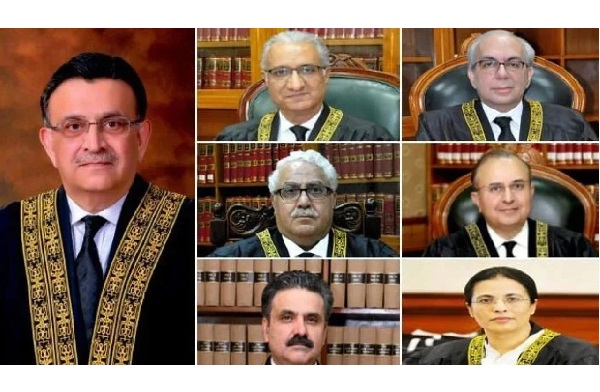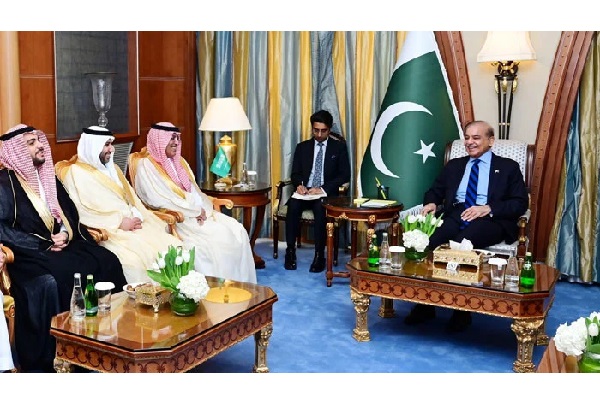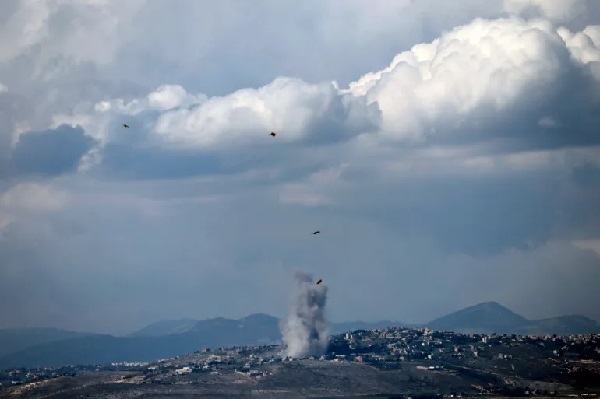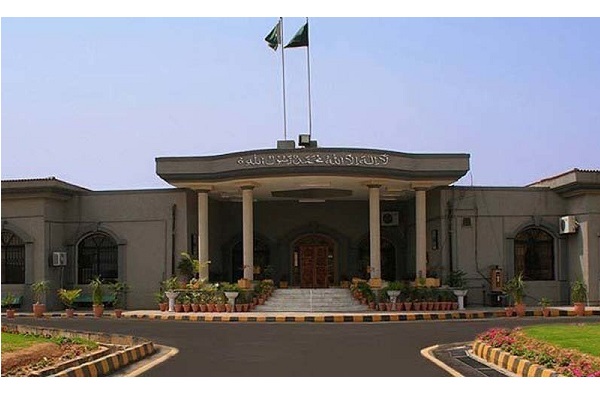RIYADH: Prime Minister Shehbaz on Sunday secured assurances on investment from Saudi Arabia and won plaudits from his hosts,
ISLAMABAD: A six-judge bench of the Supreme Court (SC) has resumed hearing a set of petitions challenging the trials of civilians in military courts.
The bench comprises Chief Justice of Pakistan (CJP) Umar Ata Bandial, Justice Ijazul Ahsan, Justice Munib Akhtar, Justice Yahya Afridi, Justice Sayyed Mazahar Ali Akbar Naqvi and Justice Ayesha A. Malik.
At the previous hearing, the apex court had rejected a plea, filed by senior counsel Faisal Siddiqi on behalf of civil society activists, to constitute a full court for the case.
“Let the people decide what law should prevail in the country,” CJP Bandial had said. “We continue with the work while being detached with the fear of criticism or being liked by some since these are matters for the history and the people of Pakistan to judge,” he added.
Meanwhile, Attorney General for Pakistan (AGP) Mansoor Usman Awan had told the court that legislation was under way to grant the right of appeal against the decisions of the court martial of the 102 suspects awaiting trial in respect of the May 9 violence and arson for attacking different military installations.
As the hearing resumed today, former minister Barrister Aitzaz Ahsan came to the rostrum.
“I want to read out four lines in court,” he said. “A new law has been approved in the Parliament, which gives intelligence agencies powers to search anyone at any time without a warrant.”
Earlier this week, the outgoing government quietly got the Official Secrets (Amendment) Bill, 2023 to amend the century-old secrets act approved by the National Assembly in a bid to grant blanket powers to intelligence agencies, which will be able to raid and detain any citizen, even under suspicion of them breaching the law.
Yesterday, the bill was presented in the Senate amid fierce opposition and was referred to the standing committee for discussion.
Referring to the amendments during today’s proceeding, Ahsan said “unlimited powers” had been given to intel agencies under the bill “without any legislation”.
He stated that six SC judges were sitting in front of him at the moment and urged the apex court to take a suo motu notice on amendments made to the Official Secrets Act.
“There are martial law-like conditions in the country today,” Barrister Ahsan added.
Here, the CJP asked the lawyer if the amendments made to Officials Secrets Act were a bill or had become law. “It is under discussion in the Senate,” the latter replied.
“We don’t have much information regarding the matter … we have only read about it in newspapers,” Justice Bandial said. He also highlighted that a previous SC bench had ruled that the CJP could not take a suo motu notice alone.
“Fortunately, the bill is still being debated in one of the Houses,” the top judge remarked. “Let’s see what the other House of the Parliament does.”
Subsequently, AGP Awan began presenting his arguments.
At one point, Justice Akhtar said the trial of civilians in a military court was equivalent to having a parallel judicial system.
Justice Afridi also asked the AGP about his opinion on Article 175 and Article 175(3) of the Constitution, which refer to the establishment and jurisdiction of courts.
“Court martial doesn’t fall under the jurisdiction of Article 175,” Awan replied, to which Justice Ayesha asked if there was any other provision in the Constitution on the basis of which the AGP was arguing.
“I am noting your questions,” Awan replied. However, Justice Ayesha asked if the former was deviating from her questions.
On the other hand, Justice Akhtar maintained that fundamental rights could not be left to the “discretion of the legislature”.
“It cannot be that one [House of] Parliament includes some offences in the Army Act while the other [House of] Parliament removes or adds others offences,” he asserted.
“The concept of fundamental human rights is such that the state cannot take them back even if it wants to,” Justice Akhtar pointed out, adding that fundamental rights had been guaranteed by the Constitution.
Justice Ayesha also said here that access to justice was included in fundamental human rights. “If military courts are not courts of law, then it is tantamount to the denial of fundamental rights,” she added.
For his part, AGP Awan said military courts were similar to tribunals that dealt with people associated with the armed forces and defence institutions. “Court martial doesn’t come under the courts formed under Article 175, hence, it doesn’t have a right to appeal,” he added.
At this, Justice Bandial said, “We are reviewing the constitutionality of trials of civilians for offences under the Army Act.”
You May Also Like
LEBANON: Hamas’s armed wing said its members in Lebanon’s south has launched a slew of rockets at a northern Israeli military position.
ISLAMABAD: Islamabad High Court’s (IHC) Justice Babar Sattar on Monday dismissed pleas filed by the Pakistan Electronic Media






